Mind Over Materialism
Illustration by Amelia Chiarelli
A student returns from Black Friday shopping trip with shopping bags.
November 16, 2022
Jayden Huang ’23 opened up his laptop to a colorful display of websites bookmarked on his browser. Some stores sell accessories, others trendy shoes –– but they all share one thing in common: their Black Friday sales, with discounts ranging from 30 to 70%.
Huang said he waits for items to reach the cheapest sale price before purchasing them. He said he prepares for savings events so he can get an early start on the shopping season.
“There are a couple of small businesses that have already announced they’re going to do Black Friday promotional things,” Huang said. “I have a few places’ sales bookmarked with times and dates. On one hand, I am looking forward to getting items, but on the other hand, it also makes me nervous because I am worried about some clothes going out of stock during the sales.”
Huang is not the only student shopping on Black Friday. According to a Chronicle poll, 62.3% of 159 students surveyed said they plan to shop on Black Friday, either in person or online. 95.6% of students surveyed said people at the school are either materialistic or somewhat materialistic.
During last year’s Black Friday season, a record $886.7 billion was spent by consumers, according to the National Retail Federation (NRF). This was a 14.1% increase from the previous year, and the NRF predicts holiday sales this year will increase by six to eight percent.
Huang is a leader of the Fashion Club, which discusses the cultural impact of trends and clothing. He said he has noticed that quickly changing trends lead to materialistic mindsets in teenagers.
“Trends definitely feed into a materialistic attitude,” Huang said. “The whole point of trends is literally just for people to shop more. That’s why fashion is constantly changing because that’s how companies earn money. Especially nowadays, with so many trends popping up and microtrends growing, it would be hard to keep up with a lot of trends. A new thing pops up every day. Some people who are really determined to be on trend end up spending a lot.”
Huang said societal pressures lead him to question his outfit choices and buy new items.
“With some of my own outfits, sometimes I’m in the mood to wear something, but then I’ll be like, ‘Wait, is that what am I gonna be like, is that not cool anymore?’” Huang said. “There’s definitely pressure to make sure you’re not going to get shamed for wearing something that you know may be considered outdated.”
Huang said social media platforms and creators’ videos inspire people to shop more, leading to overconsumption.
“Usually around Thanksgiving time on social media, there’s a bunch of Black Friday hauls, and creators will buy a lot with their main point being to show off how much they bought,” Huang said. “When you buy a lot, you will get more views and more comments, because there’s going to be comments like, ‘Oh, my God, I could never wear that,’ or ‘Oh, my God, my parents will never let me’ or even just like, ‘how do you afford that?’ A bunch of questions come up, which leads to more popular videos. For fame and clout, people will shop extra hard on Black Friday. Also because the prices are cheaper, people are more likely to buy stuff, maybe they will only wear it once or twice, if they spend less money.”
Students reflect on the sustainability of Black Friday shopping
Mia Patel ’24, the leader of the Sustainable Fashion Club, said she founded the club to change her own fast-fashion shopping habits.
“I used to shop from fast fashion stores,” Patel said. “Now recently, as I learned more about sustainable practices and the effects of our consumption, I’ve started trying to redo my closet so that it’s all basics or sustainable items. I always limit myself and make sure that the places that I’m buying from during the year are sustainable. Something that’s important when you’re considering where to buy clothes from is quality over quantity, so you can be more sustainable in your choices.”
Patel said some students use shopping as an emotional outlet. She said many people do understand the negative effects of fashion and thus change their shopping habits to avoid unsustainable brands.
“Some people at Harvard-Westlake have this mindset of ‘this is what makes me happy’ or ‘shopping is what makes me happy,’ but also some people are aware of the consequences of their actions and are able to kind of stray away from this fast fashion and lean towards these more sustainable practices,” Patel said. “I’d hope that they take the time or the effort to shop sustainably when they have the monetary privilege to do so, which is something many kids at Harvard-Westlake have.”
Patel said materialism at the school extends beyond clothing or shopping items to academic transactionality and a desire for academic success.
“The atmosphere at Harvard-Westlake itself, even academically, is very materialistic,” Patel said. “We always go there to get something in return. We always just want more and more and more, but Harvard-Westlake is doing a lot to counter the academic materialism. Also, I don’t think buying something just because you see it on someone else is materialistic. I just think that we’re easily influenced.”
Patel said she does not believe the consumeristic attitudes necessarily stem from the school being a private institution, and she said she observed a more materialistic attitude at the public school she attended before coming to the school.
“At Beverly Hills High School, most kids know that they’re never going to have to work a day in their lives,” Patel said. “They don’t have to try in school because their parents get them everything, and they don’t ever need to work because they have such big trust funds, but that’s not really a problem that Harvard-Westlake has. For example, when a seventh grader [at Beverly Hills public school] dropped their Cartier ring down the Santa Monica Pier, it was okay, because they had insurance on the ring.”
Students talk about the school’s materialistic culture in comparison to other schools and the country
Like Patel, Evan Krautheimer ’24 said he believes the problem of materialism extends beyond the school and is present throughout Los Angeles.
“At lots of schools in LA, even at public schools, there are kids that are incredibly materialistic,” Krautheimer said. “I don’t think it’s something exclusive to the Harvard-Westlake private school kids. I think just because people here have more money than average, they will spend more money.”
Krautheimer said he does not shop frequently and does not feel any pressure to buy more clothes or items.
“Over the past year and currently, I have two pairs of shoes that I actually wear and a pair of Crocs,” Krautheimer said. “I’m not really big into shoes. I’m not super into fashion, so I don’t really care. I look at people’s shoes and I’m like, ‘Damn those are sick.’ I wear these shoes, a different pair of shoes and a pair of crocs and I’m cool with that. I don’t think anyone is judging me for it, and if people do, I don’t mess with them anyway.”
Elizabeth Johnstone ’24, a leader of the Environmental Club, said whether it makes students happy or not, Black Friday is detrimental to the environment because it creates excess waste in production and packaging.
“The waste produced with the materials is a big problem,” Johnstone said. “Specific to Black Friday, packaging is a huge one. Whether you’re buying off of Amazon or in person, the waste produced in packaging can really overwhelm our waste system, and even if that material is shipped out, it’s a horrible mess of a lot of garbage and waste that ends up in landfills or in oceans. If you buy a piece of clothing and it rips, and you throw it out, then it’s just sitting in the landfill, and not only the materials that were harvested, but also the energy that it took to manufacture the shirt and then transport and package it is wasted.”
Johnstone said materialism at school is just a part of a larger materialistic attitude in the country.
“There’s definitely a materialistic culture to the way we shop and I’m not sure what the root of materialism is specifically for Harvard-Westlake students,” Johnstone said. “Overall, I would say it’s engrained into American culture. The qualities of thrift and material success seep into our everyday lives as American teenagers.”
Teacher discusses the effect of shopping on the economy
Although shopping is bad for the environment, Advanced Placement Economics and Math Teacher Kent Palmer said Black Friday spending is very beneficial to the economy.
“On a larger scale, one problem with high levels of consumption is waste, but consumption generally is incredibly important to our Gross Domestic Progress (GDP), if we can assume that represents at least one definition of the economy,” Palmer said. “Consumer spending is somewhere around 70% of GDP give or take. At the most basic Econ 101 all-things-equal level, if consumers are in a good mood, if they are optimistic about the future, if they’re employed and earning income, they tend to spend more. This means revenue for businesses, which means more production, which means more jobs, which means more income overall, which means more spending, and you get a positive feedback loop so to speak.”
Nuzzy Sykes ’24 said he does not like Black Friday and does not plan on shopping this year.
“I just don’t really get into it,” Sykes said. “It’s busy. It’s crowded. It’s kind of annoying, even online. There’s not really something that I want so bad, enough that I have to rush into a store or get online to buy something that quickly.”
Sykes said many students lack awareness of the effects and materialism of their shopping habits.
“A lot of the time, people at school don’t realize that they’re materialistic,” Sykes said. “Even just going to the cafeteria and getting a plastic bag of apples, when you could just get a whole apple and you didn’t, even then that’s wasting plastic and wasting energy.”
Sykes said he shops during the year when he feels he needs new clothes, but that even then he feels consumed by the materialistic culture.
“If I need a new shirt or something just because I noticed that I’m running out of ones that are actually staying together, I’ll buy a couple more,” Sykes said. “But then there are times when I’ll be shopping with my siblings, and one of them will be like, ‘Oh, this is a cute shirt. You should get it,’ or, ‘these are cool pants. You should get it.’ I don’t think twice about buying it. So it’s weird to see how far it’s gone, just how you don’t really think about how much you’re actually consuming.”































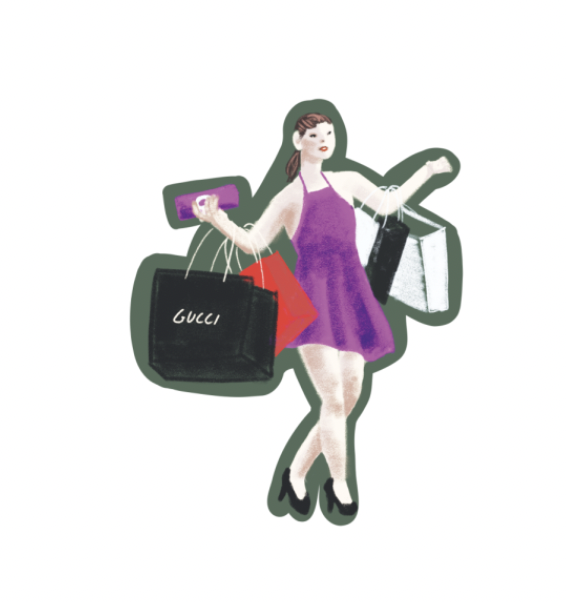
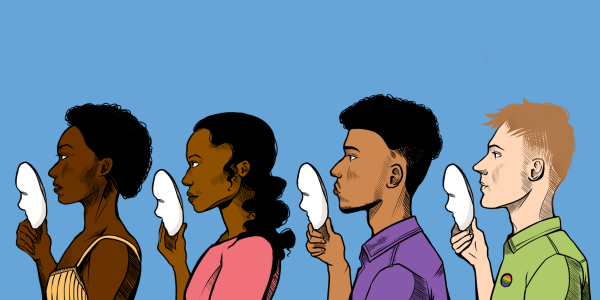
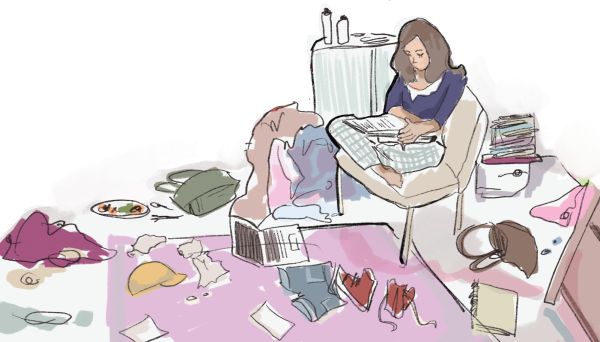
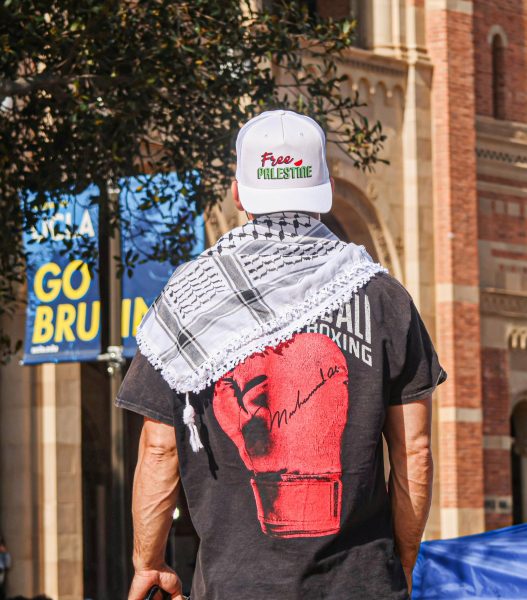

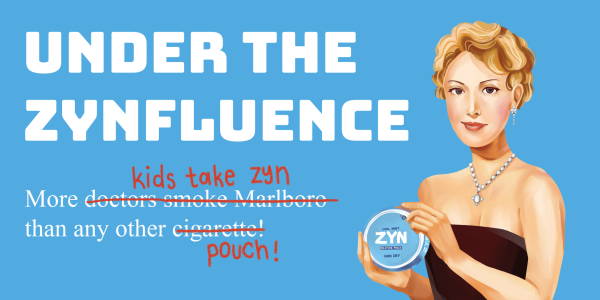

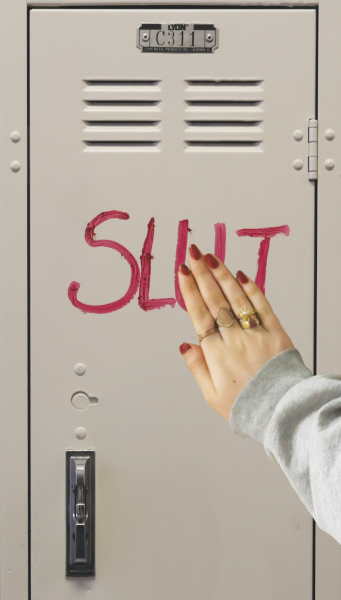
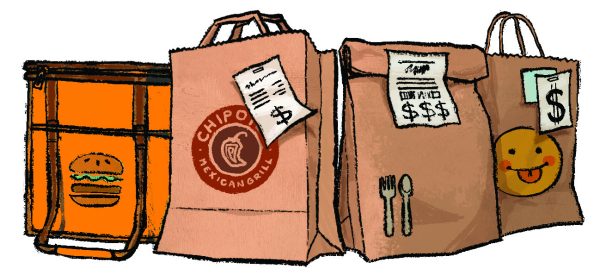
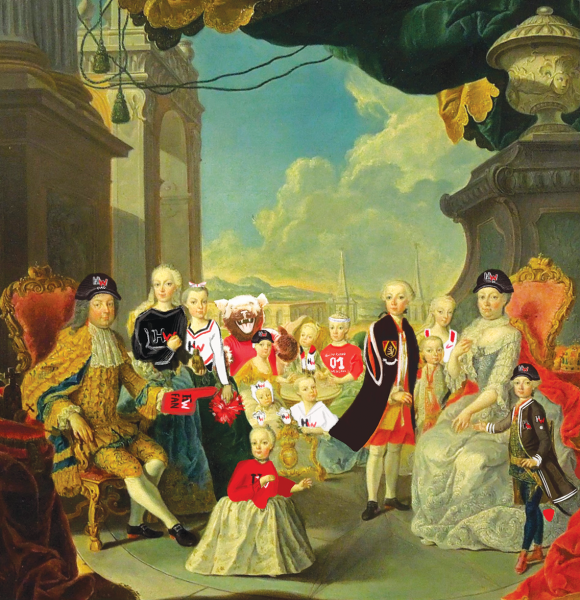

Paul D • Nov 18, 2022 at 4:38 pm
W Krautheimer